ISIS Twitter memes, and what they mean
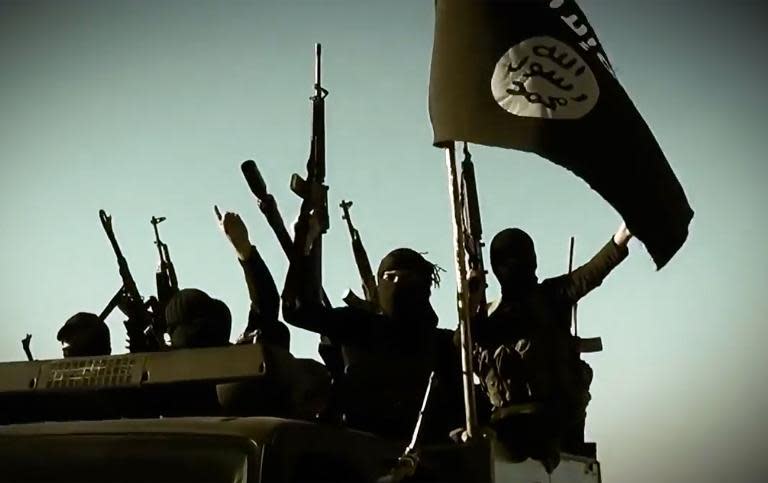
An image grab taken from an ISIS propaganda video released in 2014. Photo: AFP.
The Islamic State has a reputation for spreading horrifyingly violent imagery online. But as Seamus Hughes, the co-author of a new report titled “ ISIS in America,” discovered, the terrorist organization also appreciates a good meme.
Hughes, the deputy director of George Washington University’s Program on Extremism, spent six months monitoring the small but dedicated ISIS English-language scene on Twitter, documenting what the New York Times calls an “electronic hothouse of mutual support” for the worldwide terrorist organization’s extremist views. During that time, he documented the subculture, which is defined by specific lingo, inside jokes and, of course, plenty of memes.
“It kind of reminded me of any other online community,” he told Yahoo News. “Whether that be Reddit or some other subchannel where everyone generally knows each other.”
The images Hughes provided to Yahoo News — which include references to The Lion King and the Internet-famous honey badger — show that the English speakers who are generating this content are fluent in the pop culture language of young Westerners.
His report found that the average age of the 71 people who have been arrested on ISIS-related charges in America is 26 — and one-third were 21 and under. In other words, many of the English speakers who participate in this online subculture have probably come across a doge photo in their day.
But using memes to communicate signifies more than a demographic in common. According to Limor Shifman, author of the book Memes in Digital Culture, people use memes to both demonstrate their place in a community and express their individual opinions. As a result, exchanging these images often unites individuals from different backgrounds, whether that’s a few Internet dwellers on a 4Chan thread or the far-flung international recruits of a terrorist organization on Twitter.
In using memes to personalize or relate to an idea, members of ISIS may also be able to make the organization’s violent ideologies more palatable, according to Shifman.
“Because many memes are humorous, people can then express opinions that might otherwise be condemned for not being appropriate,” Shifman, who is an associate professor at the Hebrew University of Jerusalem, told Yahoo News. “It helps in slipping messages in that might otherwise not be expected.”
Below, a brief survey of some of the memes Hughes has collected:
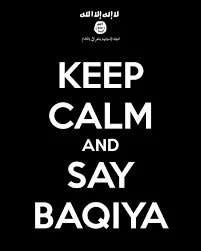
The meme “Keep Calm and Carry On” originated in 1939 when it was printed on British public safety posters during World War II. It was revived in the early-aughts in the form of key chains, stickers and Etsy mugs, and people eventually parodied the saying into online oblivion. In this case, baqiya means “remaining” — lingo in the English-language ISIS community to announce a Twitter user’s return to the platform after having his or her account suspended.
Some accounts, referred to as “baqiya accounts,” exist only to alert their followers when certain users have returned. According to Hughes, the latest shout-out account, with the handle “baqiya100,” celebrated its 100th new user with an image of a cake. It, too, was suspended by Twitter Thursday afternoon.
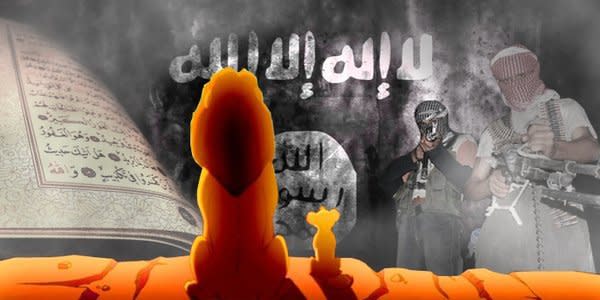
“In religious text, lions are a symbol of bravery,” says Hughes, who notes that many ISIS supporters use lions as avatars. “This is combining the two things of Lion King and ISIS together in a particularly Western type of version of this.”

According to Hughes’ report the term “green bird” is a scriptural reference that describes an ISIS member after he or she dies as a martyr and goes to heaven. Jihadists refer to their fallen soldiers as green birds as a way of eulogizing them. Thus the image of an intensely fierce hummingbird.
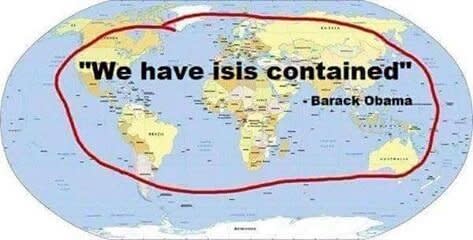
This meme paraphrases something President Obama said during a November interview with ABC’s George Stephanopoulos and was spread by right-wing blogs like The Federalist Papers. Paradoxically, it’s also used by ISIS to gloat. “Some of the people who are uploading this meme are criticizing Obama’s policy,” Shifman explains. “Others are using it to say, ‘Look how strong we are.’ So they’re using the very same template to say very different things.”
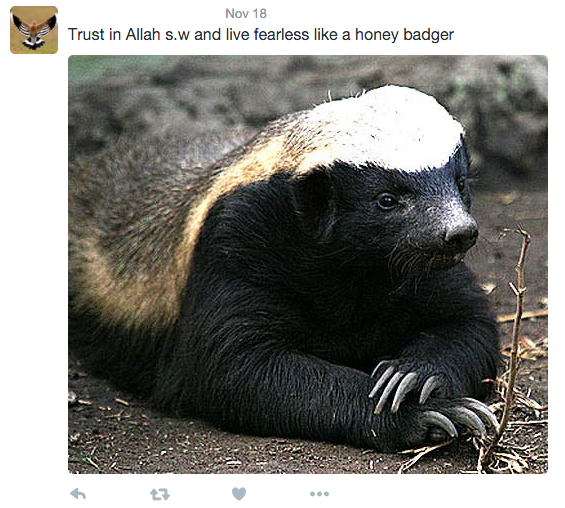
Any meme connoisseur recalls the excellent 2011 viral video “The Crazy Nastyass Honey Badger,” which included humorous narration about the admirably courageous pursuits of the native African species. As someone who enjoyed the meme myself, I was particularly startled to see it co-opted for ISIS propaganda. I recognized and understood the cultural reference, and it spoke to me in a way that a pamphlet or image of a beheading did not. When I mentioned to Shifman how disturbed I was by this, she said that’s what makes memes so powerful. “Memes are not used by one group or another,” says Shifman. “They’re becoming this prevalent cultural form that each group uses for its own use.”

